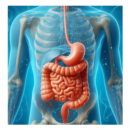Sleep Solutions
Sleep is just as essential for survival as the human need for food and water.
Just as the quality of the diet can impact well-being, the quality of sleep can contribute significantly towards good health.
What is Insomnia
Insomnia can be categorized as acute or chronic, with the latter lasting at least three days a week for a minimum of one month. Insomnia can also be considered primary (idiopathic, a nice way of saying that conventional medicine does not know what is wrong) or, more commonly, secondary due to underlying conditions).
Insufficient sleep can lead to serious consequences for almost all bodily organs and systems; most notably, immune function is reduced, and increases in systemic inflammation and inflammatory markers occur as several hormones get turned for too long or shut down.
A poor night’s sleep, though always frustrating, can present itself quite differently from night to night, and from person to person. Often it begins hours or even days before one’s head hits the pillow, and its effects can manifest for an equal length time into the future, interfering with nearly every aspect of daily life.
We’ve all heard sleep is important, but I find when people understand how the dots are connected they are better able to see how to improve their lifestyle factors to make change for increase vitality. Feel free to skip the science stuff and go straight to solutions.
In all of the research studies looking at mechanisms that support immune resilience, NOTHING comes close to getting plenty of good sleep, so it is a big deal.
How the Sleep Cycle Should Work
As we go through each day, our body releases various hormones to keep us functioning. For instance, cortisol is ideally high in the morning, which wakes us up and gives us energy to get going for the day. Cortisol gradually drops during the day and melatonin levels go up as it’s close to time for bed. This is what makes us feel sleepy. This is called our Circadian Rhythm.
This melatonin release is accompanied by a significant release of growth peptides and growth factor that “prime,” or activate, our immune cells. These cells include natural killer cells and T-cells, which are vital to fighting infections such as viruses. In other words, these vital immune cells need sleep in order to function properly.
The body needs rest to repair and get rid of the rubbish (dead cells and debris ). If we don’t get good rest then the debris and rubbish build up and we start to notice the signs of inflammation. Things like Achy joints, itchy skin, swelling, fatigue, mood swings and more…
What is Proper Healthy Sleep?
One of the first factors is that you wake up naturally and don’t need an alarm clock to wake you up. The biggest sleep mistakes most people make is they simply stay up too late … binge watching the latest Netflix series or checking your social feed.
If you are genuinely focused on improving your resilience, metabolism and your sleep then you should go to bed with plenty of time to naturally wake up in the morning.
Experiment until you find a schedule that has you naturally waking up before your alarm clock goes off in the morning. I like at least 8 hours and I have a sleep/ wake system or routine and for the most part it works pretty well unless of course I have over taxed myself and my stress level is high. I encourage all my patients to keep a journal of Food/ Mood/ Exercise/ Sleep/ Hydration etc to help them see patterns that could be keeping them from their health goals.
What if you can’t get to sleep?
If a person struggles to fall asleep at night. Is often stress-related and can lead to a vicious cycle through activation of the HPA axis.
Emotional and Metabolic stress causes this wired and tired effect. I am exhausted but when my head hits the pillow I am wide awake and I can’t stop the constant worry or thoughts. If this is happening to you, then it is a tap on the shoulder that you need to review your own going to sleep routine and your stressors.
I suggest turning everything off and sit in quiet or listen to a mediation app for sleep like calm. I recommend you do this for about 30-45 minutes before you go to bed. For some the ritual of a nice warm bath helps. This type of routine changes your state from all the business and constant input to one of slowing down and preparing to restore and repair the mind body and spirit.
What if you can’t stay asleep?
Many people have a hard time staying asleep at night. They wake up in the middle of the night, usually filled with anxiety or worry. The most common cause of this is low blood sugar, or hypoglycemia. This means you’re leading a low-blood-sugar lifestyle: You’re missing meals, going too long without eating, eating too many sugary and starchy foods without enough proteins and fats to sustain glycogen (blood sugar) production throughout the night.
Another big reason for blood sugar instability is stress. Stress triggers the release of cortisol which is good short term but inflammatory if it goes on for too long. High cortisol can trigger a blood sugar roller coaster.
Another common reason people can’t stay asleep is because of frequent urination. This could simply be from too much salt in the diet, especially before bed or drinking too much liquid before bed. I recommend you stop drinking water before 7.00pm at night. If salt is the issue then know that you are having an issue at the cellular level that needs to be addressed.
A healthy sleep solution might be that you need to increase your intake of Potassium foods or add a mineral supplement like Organically Bound Minerals to your daily intake. Minerals are also calming.
Prostate issues in men and overactive bladders in both men and women is another factor that wakes people up. This can be related to declining hormone activity and gradual weakening of the pelvic floor muscles. (There are some amazing practitioners that can help if this is a problem for you).
These are some of the examples of underlying factors that can wake you up during the night and that you must address during the day.
What if you just don’t get enough sleep?
If you did not get enough proper during the night, it’s critical you take a nap during the day, even if it’s just for 20 minutes. This is especially true if you slept less than 6 hours. This can have a profound impact on supporting your immune system.
A 2016 study published by the Centers for Disease Control and Prevention (CDC) concluded that more than a third of American adults are not getting enough sleep on a regular basis, and as a consequence declared that insufficient sleep is a “public health epidemic”.
Insufficient sleep results from a combination of factors, and is more common in certain individuals such as those who do night shift work, or who more than 40 hours per week every week under high stress. An individual with sleep deficiencies is more likely to experience a constant state of alertness and excessive cortisol secretion. So as you can see…. not enough sleep can be linked to wired and tired and can’t fall asleep.
As someone who spent years with very little sleep while studying for my Doctorate I can tell you first hand that it was tough and had an impact on my ability to handle stress even with regular yoga, walks in nature and with a daily intake of stress support like Ashwaganda Forte and Drenamin.
Natural Sleep Solutions for Healthy Sleep
As discussed, sleep is a biological process that involves communication between multiple body systems, with endocrine stress responses playing a major role.
General Sleep/Stress Support:
Ashwaganda Forte (2-3), Drenamin (6), Min Tran (4)
Support to get to Sleep:
Magnesium Lactate (4) Kava Forte (2) Orchex (4) Hemp Oil Complex (2)
Support to Stay Asleep:
Protefood (1 B4Bed ), Diaplex (2), Nevaton Forte (2)
You can purchase these whole food/ plant based formulas on your patient direct account or Here at my online store.
Additional Support for Sleep Solutions
In addition to addressing underlying factors, a white noise machine helps many of my patients sleep better. Several published studies show background white noise produces more REM sleep and more restful sleep. A white noise machine doesn’t make bird sounds, or the sounds of changing waves or the forest — it’s a continuous sound that doesn’t vary much.
An App like Calm or Aura that has both meditations and soothing music can be very helpful as part of your sleep hygiene routine.
Keep your Room Temp Cool, Make the bedroom a place for sleep only, get outside in the daylight each day to help set up your circadian rhythm and invest in a good mattress and pillow.
Finally, mist essential oil like Lavender or Stress Away, or sip on a soothing cup of chamomile tea
Final Thoughts on Sleep
There is increasing evidence that health is so much more than merely the absence of disease, and this holds especially true regarding sleep health. Optimizing the ability to achieve a full and restorative night’s rest can have positive impacts on nearly every aspect of life.
Sleep health may not look the same in every situation because we are all individual. Some are able to regain balance between fight and flight and rest and digest more easily than others. As mentioned above I encourage all my patients to keep a journal of Food/ Mood/ Exercise/ Sleep/ Hydration etc to help them see patterns that could be keeping them from their health goals.
If you are struggling with sleep, stress, anxiety and hormonal issues then please reach out and make an appointment. I am available virtually via Zoom.
Have a Healthy Week











